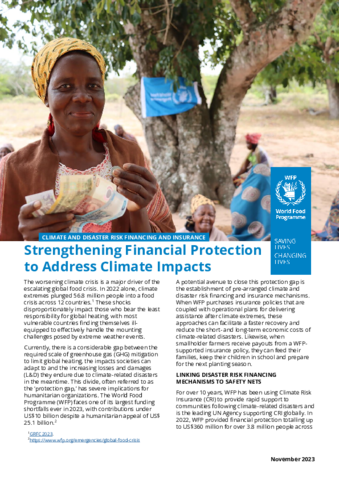
The worsening climate crisis drives the Global Food Crisis, affecting 56.8 million people as of 2022. There is a significant disparity between the needed scale of greenhouse gas mitigation, societal adaptation capabilities, and the increasing losses from climate-related disasters. This divide, commonly termed the 'protection gap,' poses significant challenges for humanitarian organizations. In 2023, WFP faces a significant funding shortfall despite a US$25.1 billion appeal.
WFP's Climate Risk Insurance (CRI) programmes have successfully provided rapid support, with stories from the field illustrating their effectiveness. This factsheet emphasizes a multi-pronged risk-layered approach and sets forth WFP's goal to expand CRI to 25 countries by 2025, ensuring a transformative opportunity for a more secure future.


